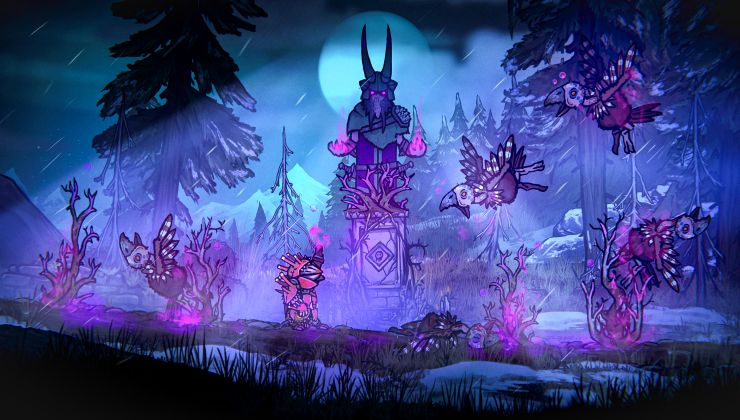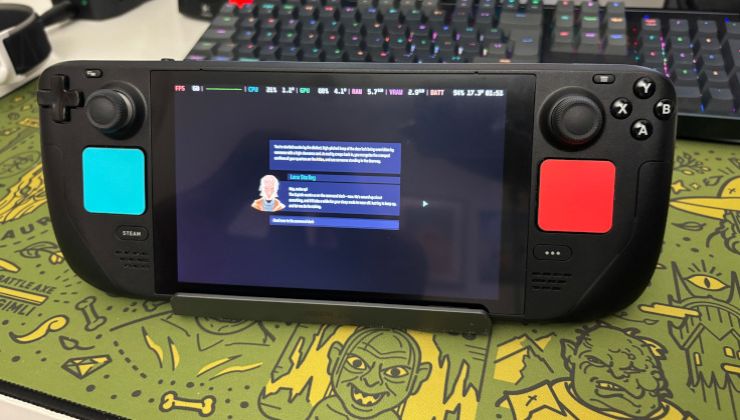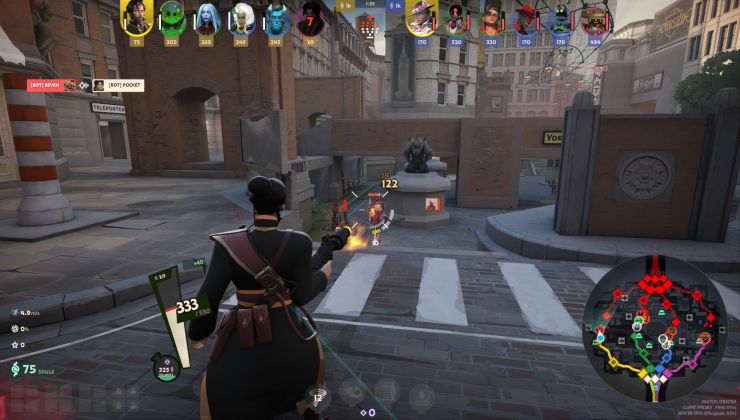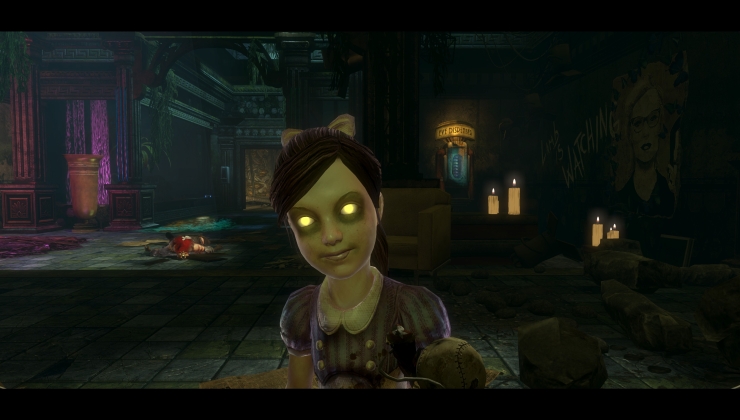It appears things aren't going overly well for game store GOG at the moment, under increasing competition they're starting to feel the heat.
First of all, in a report on Kotaku, GOG recently confirmed that they let go a bunch of staff. They claimed it was only "around a dozen of positions" while also bringing in new staff in other positions. Fair enough, that all sounds quite normal in the business world.
However, Kotaku spoke to an ex-staff member who basically said GOG haven't been doing so well financially. That seems to now be somewhat backed up a little, as GOG just announced today that they're ending their Fair Price Package program. This was the system that users could get wallet funds back on purchases, if the price of the game was more expensive in their country compared with North America.
What's also interesting in this announcement from GOG, is that they said they were able to cover the extra cost from it in the past and still turn a "small profit" which is no longer the case. As they say "With an increasing share paid to developers, our cut gets smaller.", so it sounds like they will at some point reduce their cut from developers (sound familiar?).
Their current plan for the Fair Price Package program is to continue it until 31st of March, so you have until then if you made use of it. Any funds you're given, will remain with you for 12 months so they won't vanish right away.
Sounds like it may be time to download our GOG libraries "just in case", ladies and gentlemen. DRM-free won't count for much if they go bust and we can't access our games.
If that happens we will have time enough to download all our games before the website is completely shutdown, I'm sure.
Also, as well as other companies and industries, in this times of uncertainty everyone suffers and goes through changes, restructuration and so on. The fact that they have changed some staff might indicate trouble down the road but not necessarily the end of GOG. Let's not be so catastrophic yet.
Last but not least, we should not forget that CD Project is full hands on Cyberpunk 2077 and probably some money from GOG has been redirected to the parent company, be it funds or sheer profits, to finish the development as soon as possible and start getting revenue.
Back on topic, sad to see the fair price go and the people that was fired. I like GOG, even if I don't get as many games as in Steam, and their presence on the market is key to have more competition.
That's all nice and all but I for myself don't care that much about Updates. When it runs and I can finish the Game why bother? At least that's how I feel about that. And for Multiplayer and such I myself don't care. I was and will be a Singleplayer Guy. And for the rest like Automatic here and there I call lazyness. Before Steam there was no such thing either and everyone was okay with it.
According to some developers, like Tim from Twice Circled, no Galaxy on Linux is equal to no Linux version on GOG. Obviously that is based on a serious misunderstanding, but as he has refused/neglected to answer my questions, I assume that the missing library package (i.e. the Steam runtime) is the problem, although that could be included in the GOG version as well. Who knows?
GOG is very bad at contacting developers through their preferred channel according to some of them that I contacted in cases where the GOG version was behind some time. Some of the games were updated on the following day. It's baffling, but it seems that GOG are as bad at communicating with the developers/publishers as they are when dealing with customers. Other developers promised an update very soon when I contacted them three months after the update hit Steam and that update is still not there almost 18 months later.
That said, it’s still completely incomprehensible for someone coming from Windows that they then need to enable the 32-bit architecture and install a bunch of libs in the terminal before the game they just installed can work.
Mint has 32-bit package support enabled out of the box at least, and I think Ubuntu has for some time now too. As for dependencies, I made a meta-package for quickly installing most commonly required dependencies on Mint 19.x/Ubuntu 18.04 - the download link can be found (along with my Mint beginner's guide) here.
No need to use the terminal either - just double-click in the file manager to install (even if installing the dependencies manually there's no need to use the terminal as Synaptic Package Manager can be used for that). The last time I tried it is a lot more of a hassle on Ubuntu though as gdebi & Synaptic aren't installed by default and it tries to open loose .deb packages with the software center (which can't actually install them).
That's all nice and all but I for myself don't care that much about Updates. When it runs and I can finish the Game why bother?Because you get an improved experience. I hope I don't need to explain to you why people would want to bother with an improved experience.
If you don't care as long as you can somehow finish the game, fine, but most people do care.
And for the rest like Automatic here and there I call lazyness. Before Steam there was no such thing either and everyone was okay with it.You confuse efficiency with laziness. People will always go for the more convenient option, because in doing so, they can save time.
Lifetime is the only resource that is truly limited, so why waste it on something inefficient if doing so gives you no other advantages? And to most people, GOG has no real advantages over Steam. Sure, some care about the DRM stuff and the ability to just download an installer. And some just hate Valve for no apparent reason. But that is and always will be a minority. Most people, surprisingly, just want to play a game :)
My experience with a GOG game on linux was:
A) The slowest installer I have ever witnessed. Seriously, it took about 20 minutes to install Battletech. 20 minutes for unzipping a handful of GB... Wtf.
B) I had a bug that prevented me from continuing. I knew there was a patch out that fixed it. But you cannot download patches on GOG (or rather, no dev bothers offering only patch files). So I had to download the entire installer again and go through the entire slow-ass installation again.
Compare that to Steam, where installation is near instant and so is updating... In fact you don't even have to bother with updating, it happens automatically if you don't opt out (for example, in order to keep your game compatible with some mod).
I see nothing lazy in preferring Steam over GOG, just a much more efficient use of my time.
Last edited by TheSHEEEP on 27 Feb 2019 at 3:50 pm UTC
Usually Humble also gives you a Steam key. ;)GoG is like third on my list of stores to look at, mostly because of what a PITA it is to download and install games bought there. So Humble and Steam usually get my money.
I'm curious how GOG is any more of a PITA than Humble? Both pretty simple: go to website, log in, download.
If you're using lgogdownloader, it's even easier than Humble.
Which has nothing to do with downloading and installing from Humble. Really, if you care about the DRM-free aspect, GOG is better than Humble. There are zero standards as to what you are getting from Humble. Sometimes it's an archive, sometimes its an installer. There isn't any real consistency with Humble - there are cases where the base game is DRM-free, but the DLC is steam-only. The updates at Humble are often just as haphazard as they are at GOG.
Other than the Steam key, there aren't many reasons to shop at Humble.
(…) I like being able to roll back versions at my discretion. (…)
Serious question: How do you do that?
I only know two choices using Galaxy or keeping the old installers on an external HDD. The first option does not work on Linux and the second one is cumbersome, really cumbersome. I know that because I keep several installers for some games and it wastes a lot of space.
You didn't ask why you should care about Galaxy, you asked why "so many" care. Patola's list seems like a solid answer. Doesn't mean you have to start caring for your particular use-case.Can somebody explain me why so many are like no Galaxy = No GOG Buys? Like do you all REALLY need a client for your games? Just go for the normal installer or when it's a Windows game just use innoextract. I for myself couldn't care less for Galaxy. I don't even use it on Windows sooo....- Automatic updates. Or do you like going to every page of a game you own on GOG regularly to see if the shown version is bigger or the same as you have installed?
- Multiplayer. Chat. Use of libraries for that. Some Linux games are not on gog due to the lack of these libraries.
- Centralized solution for your purchases there, e.g. if you need disk space and aren't going to play a game from some time you can just uninstall it, knowing full well that you could reinstall it anytime you want with minimal fuss. That's something you can easily replicate if you like messing around with files and directories, though.
That's all nice and all but I for myself don't care that much about Updates. When it runs and I can finish the Game why bother? At least that's how I feel about that. And for Multiplayer and such I myself don't care. I was and will be a Singleplayer Guy. And for the rest like Automatic here and there I call lazyness. Before Steam there was no such thing either and everyone was okay with it.
Galaxy is like having a spiky mace up one's rectum, so I prefer not to use it. The way I see it, it's the same deal as with Steam, and I refuse to run bloatware and "phone home" software like that. Pretty amazing to me that stuff like that exists at all, and that people are fine with it, but there we are. One of the reasons I run Linux, and Linux only, is to have control over my computer. If I need to do a little more legwork to get games to run (which is usually not needed, I might add), I'll happily do that.
Well, as for GOG, I think these reports are exaggerated and that they're not truly in trouble. Time will tell. If they do happen to keel over, at least we can run the games for all eternity anyway, and download them as independent installers. I like that. It takes a lot of space, sure, but it's not that big a problem in this day and age with cheap multiple-TB harddisks.
Anyway, despite some pretty questionable moves over the last few years (5?), I like GOG and it's the only place I buy games (after humble became a steam key reseller). Wish there were more options, with games that I want, but at least there is a decent chunk of independent games coming out, often with native Linux support, so there is always that. Kickstarter (and the like) isn't entirely dead either - although I was very sad to see Obsidian get eaten.
At least the missing Linux version of Galaxy means that there are some clean installers.
This is why I hope Galaxy for Linux never materialises. At least as long as that doesn't exist, and they are trying to officially support Linux, they have a real reason to offer clean installers (although they have tried to put their filth in them too over the years, thankfully to big community opposition).
GOG isn't what they were years ago, and the only principle they really have left is the DRM Free one, which is the main reason I still buy my games there.
Kind of sad GOG is taking a hit.
The gaming market is hitting the same issue as online streaming.
Movie streaming replaced TV but then so many streaming services showed up that it became just like TV.
These online games stores are going in the same direction.
We had Steam and GOG. And all games were easy to get on one of two platforms.
Now the stores are multiplying and exclusives are forcing people to choose or end up with a miriad of accounts.
Could be worse if you lived in the UK you have to pay the government to own a tv in your home every year and youtube counts as tv it didnt originally but it does now because it can be watched live. But yeah it is true the exclusive shows is the only way to get you stay and in some cases you end up paying nearly as much as cable/sky to make sure you dont miss anything.
LOL
we have a public broadcaster tax.
It's assumed if you have electricity you can watch public tv or listen to public radio. so 55 euros tax a year.
That said, I really don't want GoG to close shop doors. I like that they value and keep good old games "alive". They don't invest into Linux like Valve, I guess they simply can't do this even if they wanted considering the low number of Linux users, but they are supportive and offer Linux visibility. This is already a lot more than other stores. I want Valve to succeed, to prosper and to get rewarded for their Linux investments. But equally I want GoG in a healthy state. I think both can and should happily co-exist (together with itch.io).
(Most important, without GoG we would miss a lot of heated discussions here ;))
Last edited by jens on 27 Feb 2019 at 10:14 pm UTC
(…) Freespace 2, Descent 1/2/3, Unreal Tournament 2003/2004 all have Linux builds but no support from GOG. (…)It is not that easy:
- AFAIK there was no Linux version of Freespace 2 until the community efforts to improve the engine after the source code release, so it is unofficial.
- The official version of Descent 1/2 is Dosbox based. The native versions are unofficial.
- Descent 3 has an official Linux version, but that was made by Loki and was owned by Loki. They are not allowed to distribute it.
- I don't know why Unreal Tournament 2003/2004 is missing, but it's probably Epic's fault.
When they sold the original NWN they didn't sell Linux version as well, although I remember that it used to work very well (unfortunately I don't like the game).
Welcome to the internet CDPR is my response to that ordeal... world is 99% toxic online, regardless of platform.
Release GOG Galaxy for Linux, allow people to plugin proton to it.
GOG games are quite easy to use with Wine. Instead of clients and etc. GOG could just bundle more games like they did with Flatout 2.
Last edited by Shmerl on 28 Feb 2019 at 1:43 am UTC
But Dosbox runs on Linux. I think I have, uh, three games from GOG. Two of them are Master of Orion I & II, both of which were offered by GOG as Linux games, both of which run in Dosbox. And that's just fine.The official version of Descent 1/2 is Dosbox based. The native versions are unofficial.
Wasn't part of the point being made precisely that GOG could easily package for Linux many games that run in Dosbox, but has not done so?
I was actually thinking, I suppose in the absence of Galaxy one sensible thing to do would be use Lutris, not just for Wine but for all games bought from GOG. Wouldn't get you all of what Galaxy does, but it would maybe help?Release GOG Galaxy for Linux, allow people to plugin proton to it.
GOG games are quite easy to use with Wine. Instead of clients and etc. GOG could just bundle more games like they did with Flatout 2.
Last edited by Purple Library Guy on 28 Feb 2019 at 2:04 am UTC
Wouldn't get you all of what Galaxy does, but it would maybe help?
Galaxy has several components, which are confusingly all called Galaxy.
1. Galaxy HTTP API which allows updating games, pulling incremental deltas and etc. Galaxy client is using it for updates. However GOG need to explicitly enable it for each game on the backend. It doesn't work for Linux games (likely since they didn't yet "enable Galaxy for Linux").
2. Galaxy UDP based protocol which is used by games through its Galaxy library for multiplayer, achievements and so on. That can work with Linux games, as long as you have a). said Galaxy library built for Linux. b). some client running, that authenticates against their HTTP API. The library communicates with that client.
I.e. multiplayer only works together with client running, supposedly for encapsulating auth issues to it. There is a community implementation of such client, but it still relies on Galaxy lib (blob) and not all games are shipped with it.
All of that is called Galaxy, and part of that stuff is server backend, Lutris can't help with that.
What Lutris (or any community project) can do, is to be a UI around existing GOG downloaders like lgogdownloader and wyvern (or their library forms like Rust GOG crate). They figured out a way to emulate Galaxy updating, by using HTTP offsets in Linux installers, which are essentially indexable ZIP archives. You can pull individual files that way, and can also check if they changed before pulling. Not sure about chunks granularity there.
Last edited by Shmerl on 28 Feb 2019 at 2:27 am UTC
https://gogapidocs.readthedocs.io/en/latest/
https://gitlab.com/Yepoleb/comet
https://bitbucket.org/monkey0506/agsgalaxy/src
https://github.com/Sude-/lgogdownloader
https://github.com/nicohman/wyvern
https://crates.rs/crates/gog
Last edited by Shmerl on 28 Feb 2019 at 2:35 am UTC
At least the missing Linux version of Galaxy means that there are some clean installers.
This is why I hope Galaxy for Linux never materialises. At least as long as that doesn't exist, and they are trying to officially support Linux, they have a real reason to offer clean installers (although they have tried to put their filth in them too over the years, thankfully to big community opposition).
You can offer both, just as any package management tool does on any Linux distro.













 How to set, change and reset your SteamOS / Steam Deck desktop root password
How to set, change and reset your SteamOS / Steam Deck desktop root password How to set up Decky Loader on Steam Deck / SteamOS for easy plugins
How to set up Decky Loader on Steam Deck / SteamOS for easy plugins
See more from me